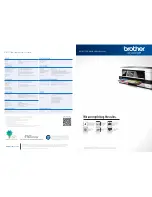
10
EN
Protect batteries and rechargeable batteries from mechanical damage during transport.
Never store the Li-Ion battery in the sun, on radiators or behind glass windows.
Do not overheat batteries and rechargeable batteries or expose them to fire.
Avoid the ingress of moisture into batteries and rechargeable batteries.
Do not use damaged batteries or rechargeable batteries. Dispose of properly.
(see Chapter 12 / Disposal)
.
WARNING
A short-circuiting or unintended use can cause batteries to overheat and create an injury or fire
hazard.
Do not transport or store batteries in the pockets of garments.
Do not bring the battery contacts in contact with jewelery, keys, or other electrically conductive objects.
Do not charge non-rechargeable batteries
Do not discharge the batteries through short-circuiting.
Do not solder the batteries within the device.
Do not mix old and new batteries, and do not mix batteries from different manufacturers or
with a differing type designation.
WARNING
If disposed of improperly third parties can possibly be seriously injured and the environment
polluted. The burning of plastic components generates toxic fumes which may impair the
health of people. Batteries / rechargeable batteries may explode if they are damaged or heated
excessively, and thereby cause poisoning, burning, corrosion or environmental contamination.
If disposed of negligently unauthorized persons are able to use the product improperly.
The product must not be disposed of together with household waste. Dispose of the device and
accessories properly
(see Chapter 12 / Disposal)
.
Protect the product at all times from access by unauthorized persons, and especially children.











































